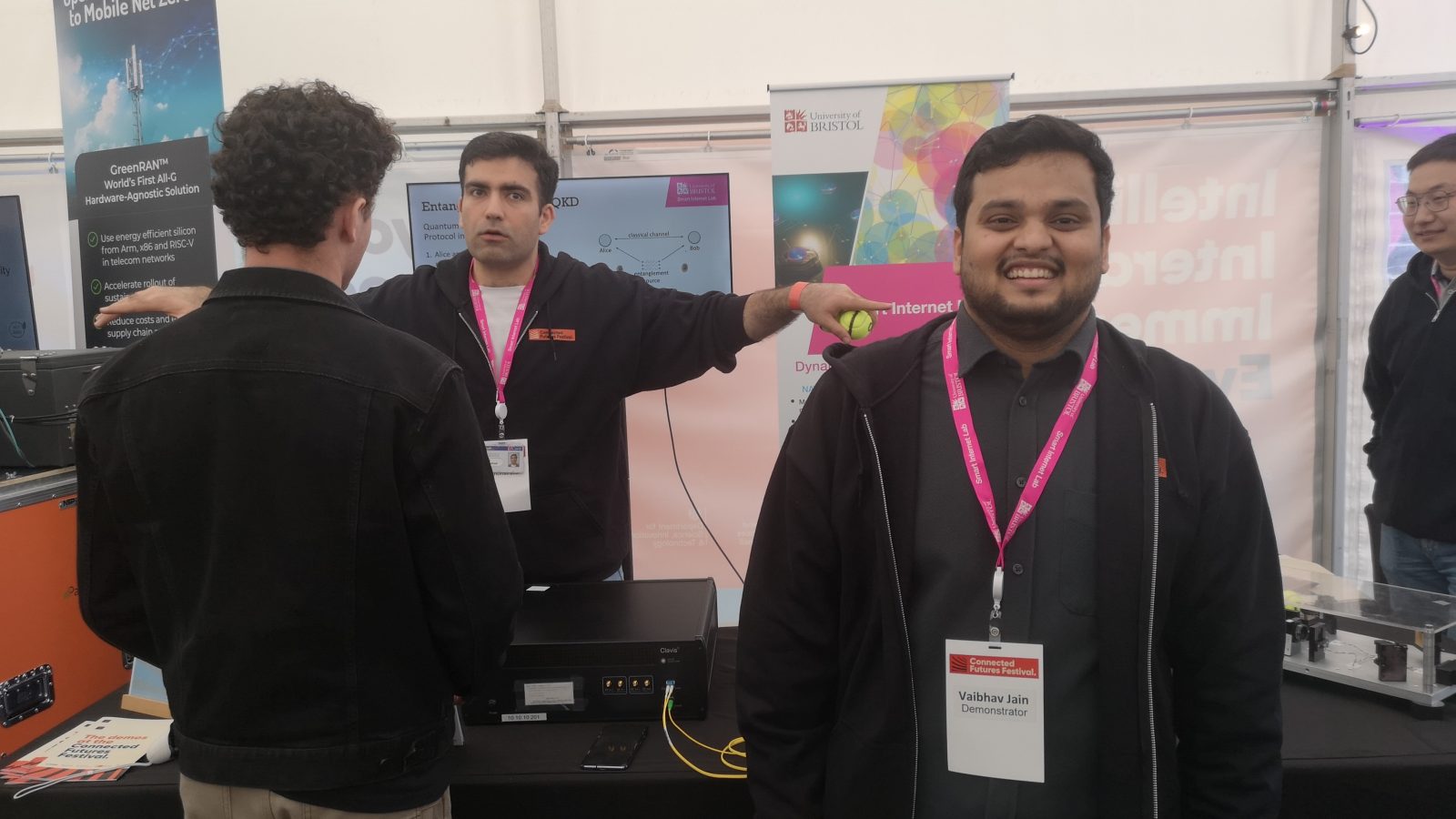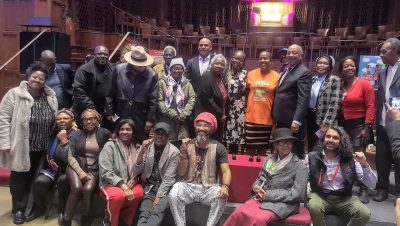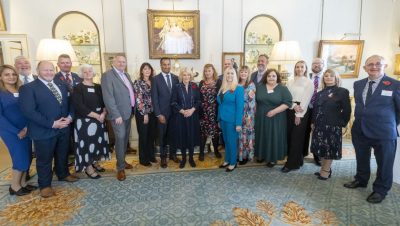News / Tech
Uni-hosted tech festival unveils future powered by 6G technology
Imagine a world where phone signals never drop; a factory floor that is remotely operated using a “digital twin”; a dental inspection that is carried out thousands of miles away with a robotic arm; and an enhanced match-day experience that guarantees every home comfort—except a win. These, along with many other innovative themes, were central to the 6G festival held in Bristol.
The Connected Futures Festival was hosted by the University of Bristol’s Smart Internet Lab, alongside its flagship projects JOINER and REASON, as well as the Federated Telecoms Hubs.
The public event, held at Millennium Square, featured demonstrations such as a 9m-long inflatable and articulated snail. There were also industry conferences at We The Curious, including an address from Chris Bryant, minister of state at the Department for Science, Innovation and Technology, who joined the proceedings via a video link.
is needed now More than ever
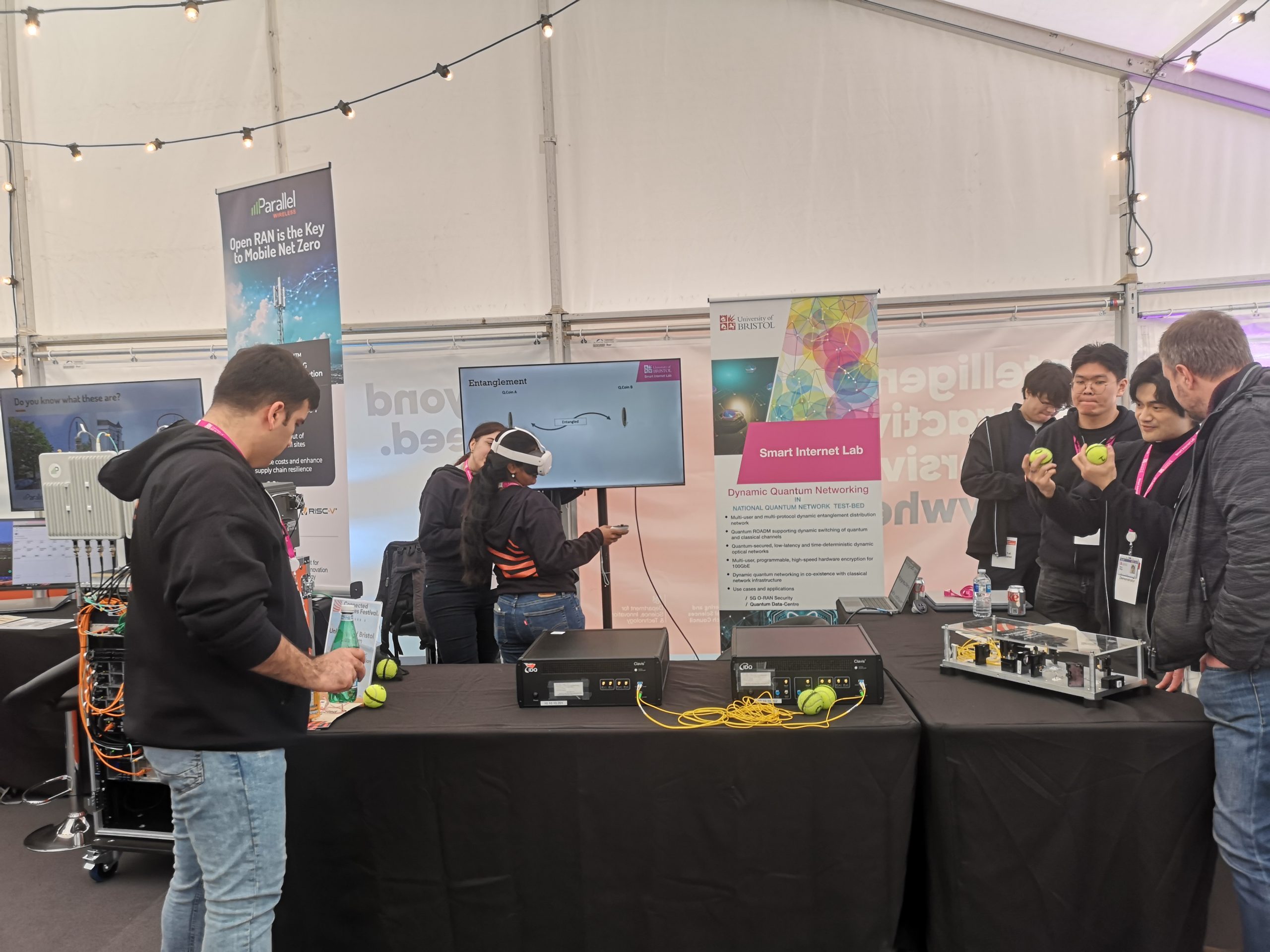
University of Bristol’s Smart Internet Lab hosted the event in Bristol
Professor Evelyn Welch, vice-chancellor and president of the University of Bristol, said: “This remarkable event has given us an exciting preview of what the world could look like in just ten years’ time.
“The next generation of mobile networks promises to be immersive, interactive, intelligent and inclusive, and the University is helping to lead the way for a connected future where people’s lives are immeasurably improved.”
The public demonstrations inside the Millennium Square marquee attracted large crowds, including school pupils, teachers, aspiring professionals and the general public.
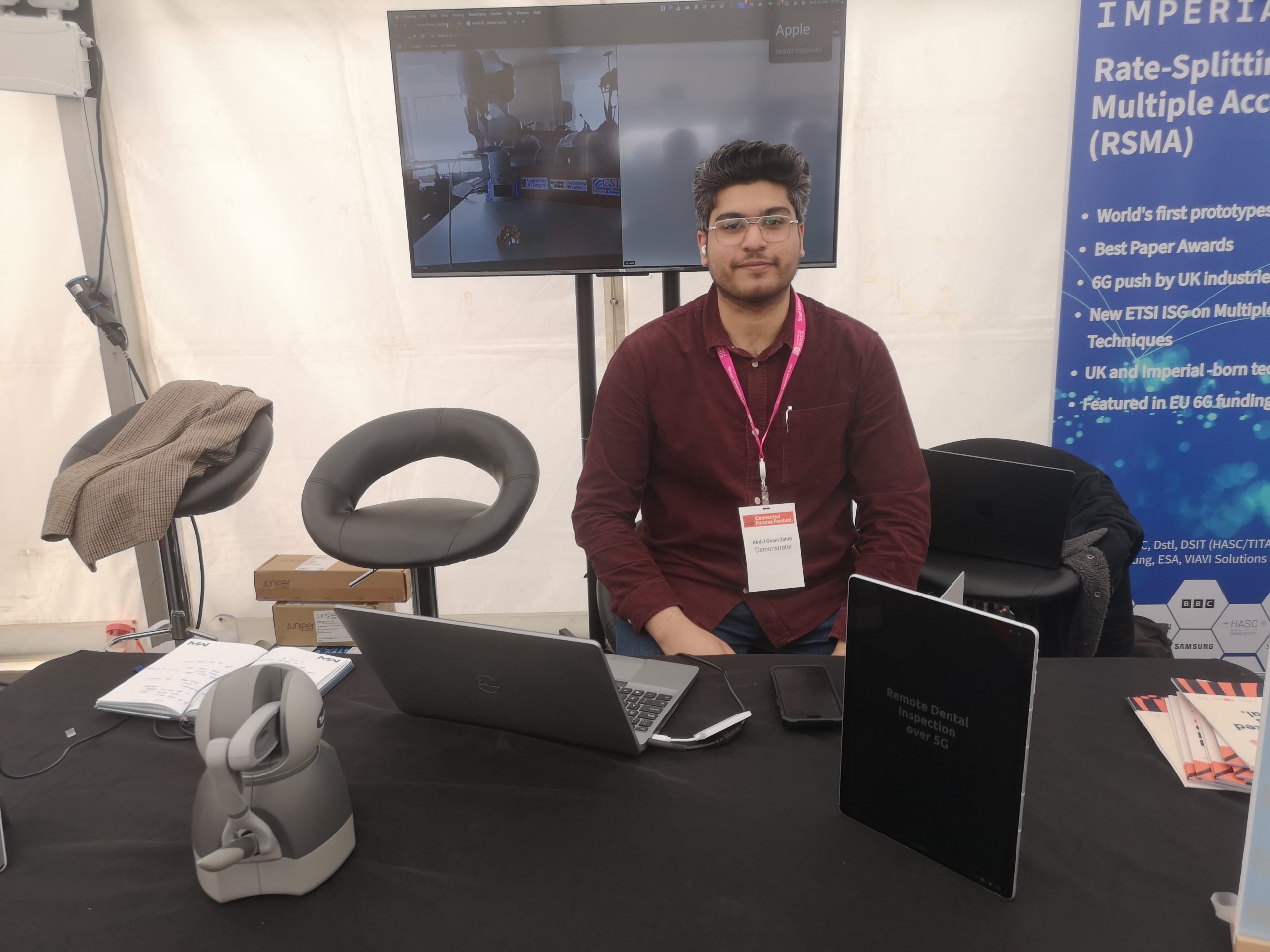
Researchers at University of Glasgow demonstrating dental inspections carried out by remotely-operated robotic arms
The 6G projects, which are at various stages of development, were represented, with stalls from leading institutions in the sector such as University of Bristol, Imperial College London and University of Glasgow.
The University of Bristol’s Smart Internet Lab unveiled its flagship REASON and JOINER projects to the public.
Speaking to Bristol24/7, Julia Macdonald from the Smart Internet Lab said: “In Bristol, we’re incredibly fortunate because the University of Bristol attracts some of the best researchers. Within the Smart Internet Lab, we’re conducting outstanding research into 6G and mobile networks.
“For instance, you may have noticed that when you’re on a train, your signal can sometimes drop out. In the future, it won’t just be a matter of connecting to a single mobile network. Instead, we’ll connect to a range of technologies—Wi-Fi, Li-Fi, satellites, mobile networks, and more. This means that, in the future, we’ll be able to complete an entire train journey without experiencing any connectivity issues.”
Daniel Regan, senior research project manager at the Smart Internet Lab, told Bristol24/7: “Essentially, what’s happening here at the Connected Futures Festival is that we’re looking ahead to 2035, when 6G, as we currently understand it, is expected to launch—although 5G is still in the process of rolling out.
“In simple terms, 6G represents the next level of connectivity that you’ll experience on your phones, devices at home, while on trains, or essentially while on the move. What we’re focusing on is multi-technology access. This means that, for example, on your phone, you’ll be able to connect to various types of devices, and your phone will manage these connections for you, all with the help of AI.”
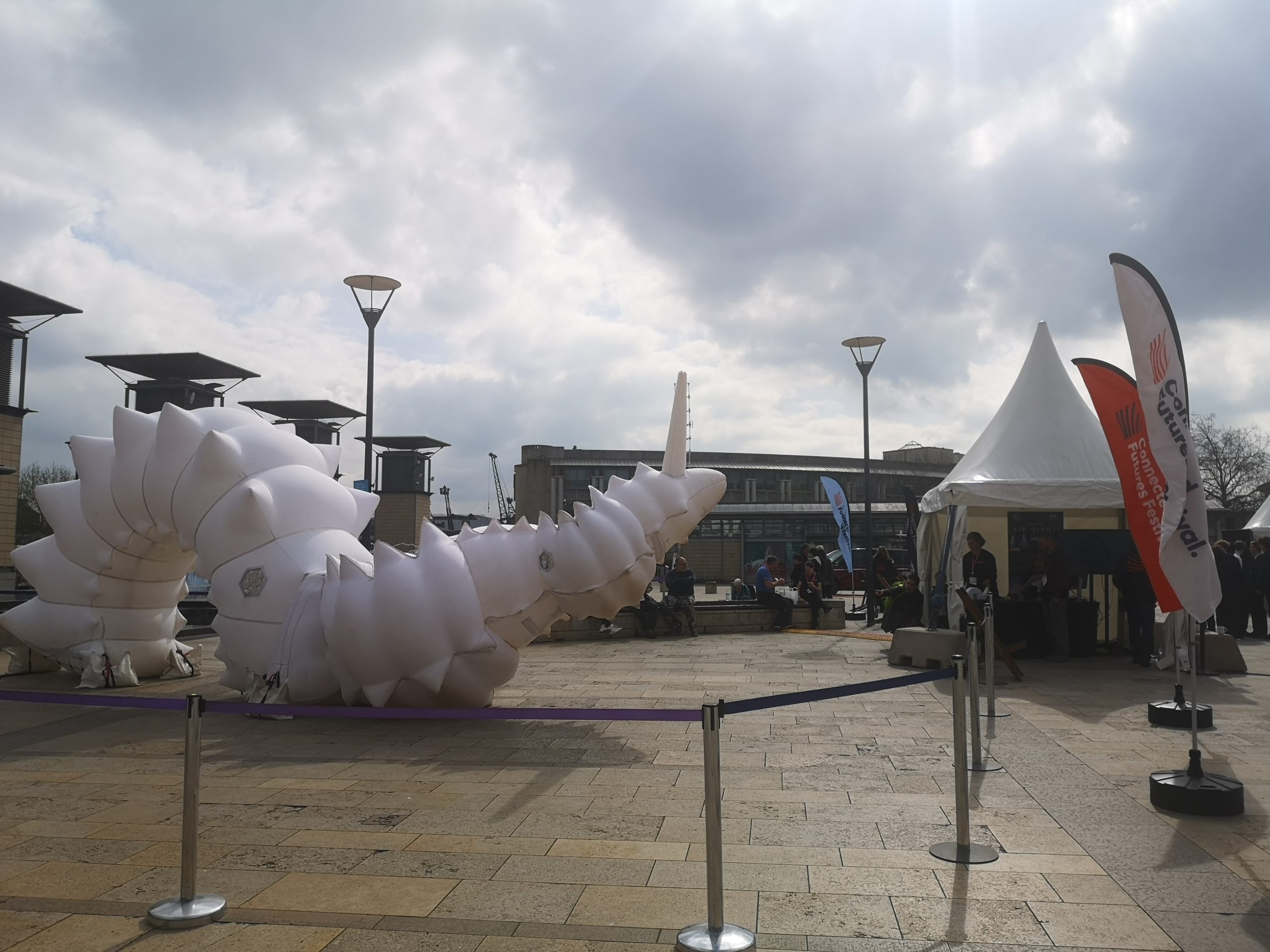
Luma, the inflatable snail at Millennium Square, was hard to miss
Another development driven by the rise of 6G is quantum computing and its impact on cryptography, with a focus on quantum key distribution (QKD) as an alternative to classical cryptography.
Vaibhav Jain, senior researcher at the Smart Internet Lab, explained the complex science in layman’s terms: “We are developing quantum communication and computing technologies, which are closely linked.
“Quantum computing uses qubits instead of classical bits, allowing for parallel computing and significant increases in power. This has a major impact on cryptography, as current systems rely on prime factorisation—a problem that quantum computers can solve in seconds, breaking current encryption methods.
“To counter this, we’re developing Quantum Key Distribution (QKD), which uses quantum properties like superposition and entanglement for secure communication. This approach will replace classical cryptography, safeguarding telecom, banking, and national secrets.”
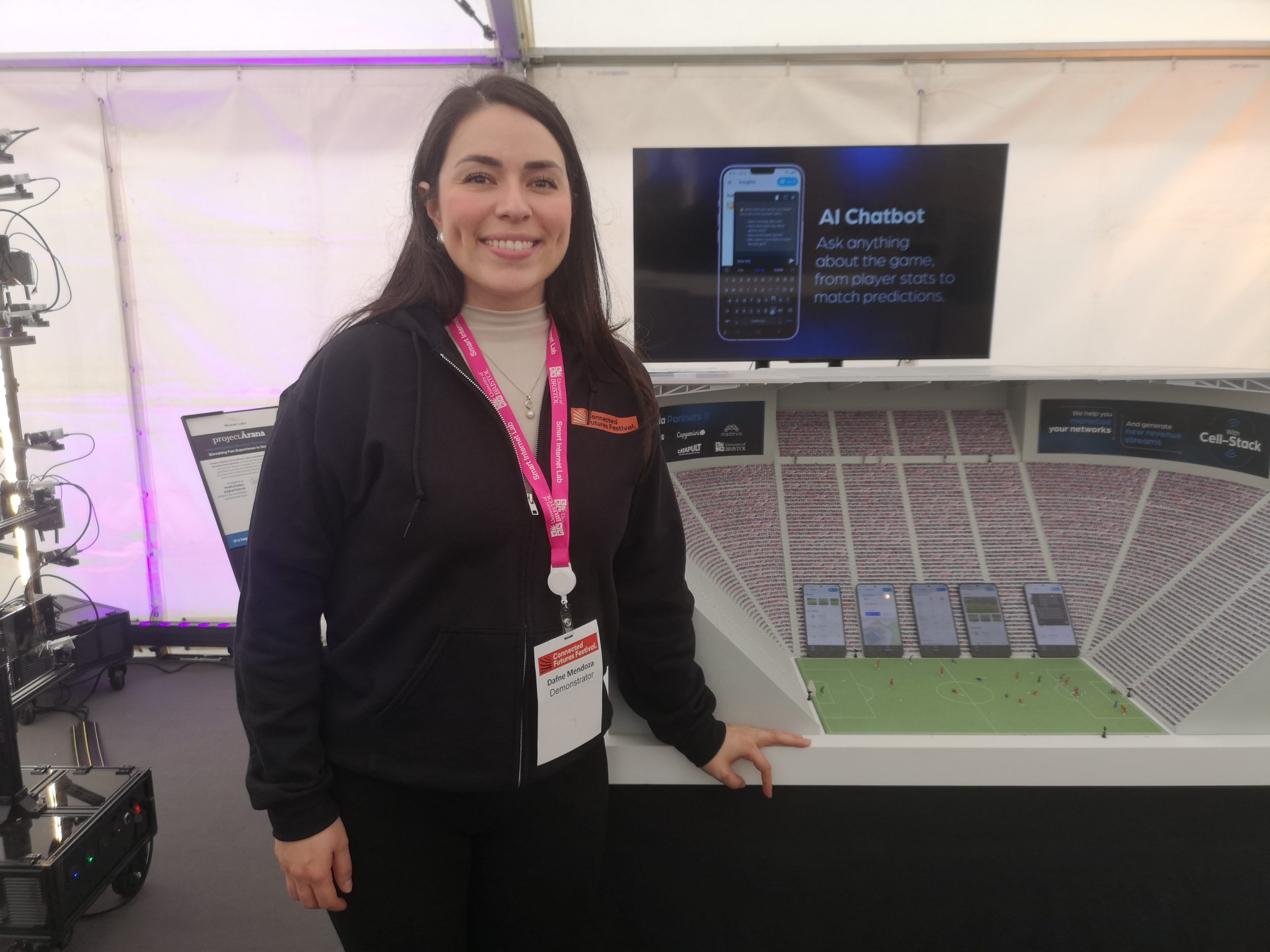
Weaver Lab has already tried maximising match-day experience at MK Dons using 5G technology
One of the most eye-catching demonstrations was the ‘digital twin robot,’ which is set to revolutionise the management of factory floors and warehouses from thousands of miles away. The technology uses an on-site robot operated remotely by a ‘digital twin’ and could be used for tasks like stock checks, retrieving items, and managing factory floors.
Powered by the REASON project at the Smart Internet Lab, the developers believe this innovation to be a “game-changer.”
Nick Methley, research assistant at the Smart Internet Lab, said: “We started by creating a digital environment that uses semantic communication, which reduces bandwidth usage while achieving the same results as traditional communication.
“This allows us to apply AI to data feeds from a digital factory. In this factory, we also optimise network connections for robots, switching between technologies like Wi-Fi and Li-Fi, which uses light to transmit data. This ensures good communication, enabling the robots to perform AI tasks effectively.
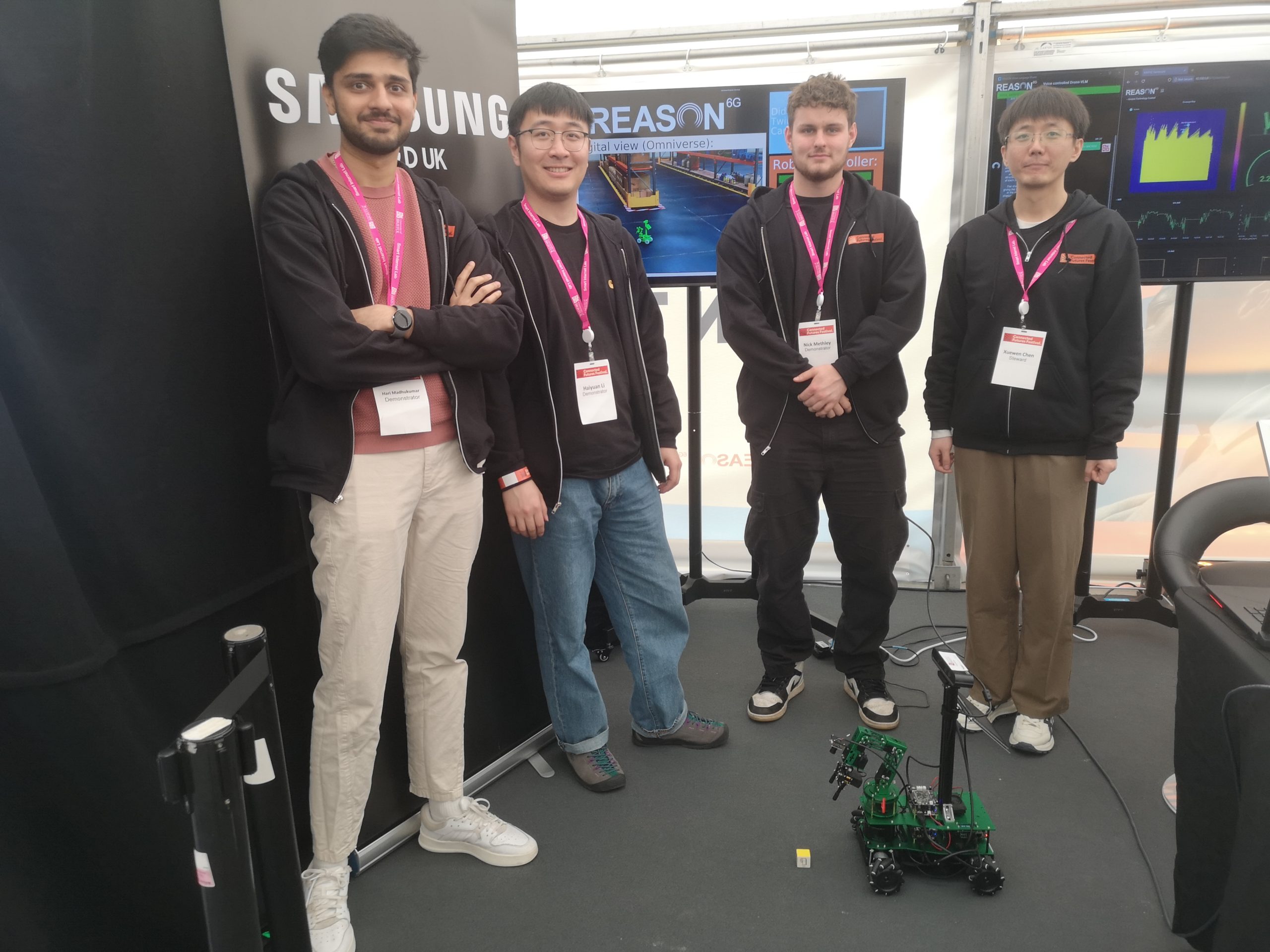
A team from University of Bristol’s Smart Internet Lab explaining the future of factory floors powered by robots with digital twins
“Next, we developed a chatbot that users can interact with. For example, you can ask a drone what it’s looking at, how many tubes of toothpaste are in stock, or even place an order from Amazon. The chatbot can provide real-time answers, such as stock availability.
“Finally, we have the digital twin, a cutting-edge concept where a real robot works alongside a digital replica. They perform the same tasks, and this allows computer scientists to test solutions in the digital space first. Once the best solution is found, the real robot can execute it, saving time and reducing the need for multiple real robots to perform the same tasks.”
Another busy stop inside the marquee was a project already in use at MK Dons, powered by Weaver Lab using 5G, with potential for scaling up to 6G once it is rolled out. Whether searching for a less crowded exit, finding where the toilets are, or viewing an alternative angle of a goal, the technology promises maximum fan interaction and satisfaction—except, perhaps, a guaranteed home win.
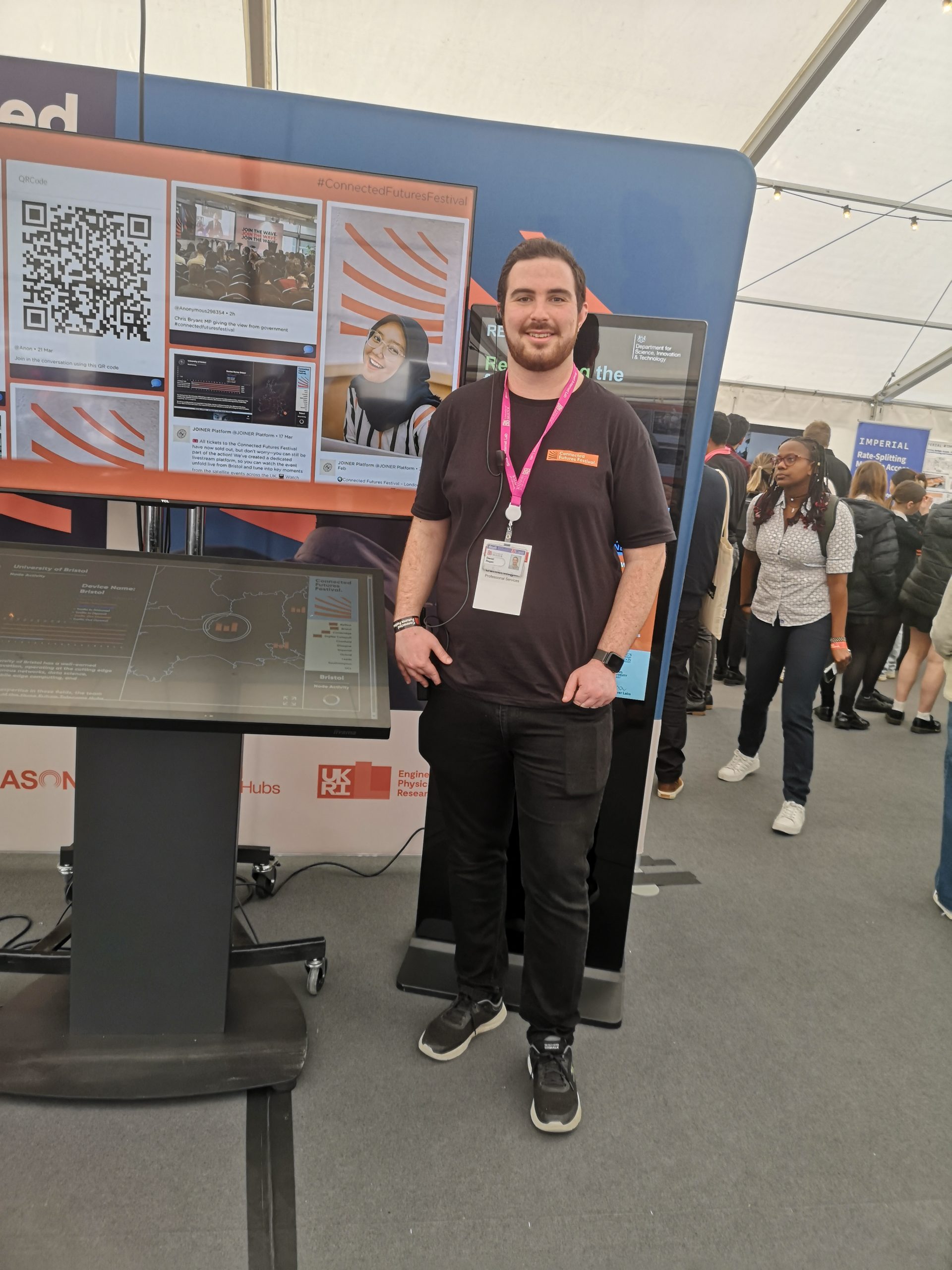
“In simple terms, 6G represents the next level of connectivity that you’ll experience on your phones, devices at home, while on trains, or essentially while on the move,” said Daniel Regan, senior research project manager at the Smart Internet Lab
Researchers at the University of Glasgow also demonstrated a technology using a remotely operated robotic arm to inspect dental cavities and other ailments thousands of miles away. The team behind the project believes the technology could be scaled up to assist dental patients with no access to practices or who live in areas not easily accessible.
The welcoming presence of the giant 9m-long inflatable snail, Luma, commissioned by Watershed, was far from trivial. It illustrates how 6G might impact technologies like robotic surgery and self-driving cars by addressing latency in telecontrol systems.
Jake Kaliszewski from Watershed explained: “This inflatable robot, created by Air Giants, is an interactive example of soft robotics. The robot’s movements are controlled by the flow of air into different chambers, which is managed by the controller in front.
“The lever on the right adjusts the latency in the telecontrol system—the higher the latency, the harder it becomes to control the robot. We’re discussing how this could impact fields like robotic surgery or self-driving cars in the future, where precise control and minimal delay are crucial.”
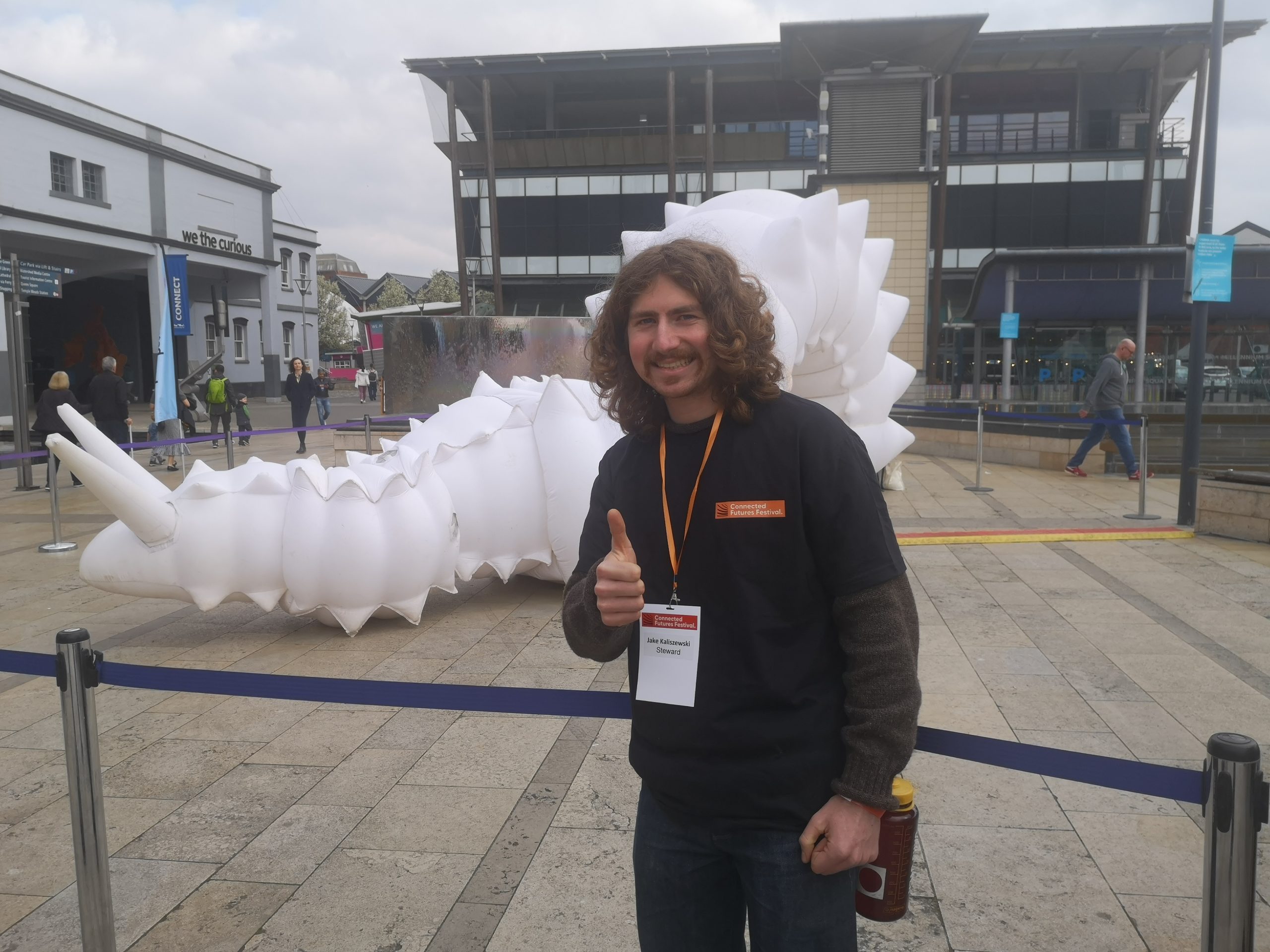
Jake Kaliszewski from Watershed by the 9m inflatable snail, Luma demonstrating latency
On the significance of the event, professor Dimitra Simeonidou, director of the Smart Internet Lab, said: “The UK is doing fantastic work in this space. We have the opportunity, driven by academia, to play a significant role in the global development of future networks.
“And that’s what today is all about—bringing researchers, industry, government, and the general public together to showcase the great work that’s being done. To give you early insights into the work and thinking that is to come. And to imagine—together—what our future world might be like.”
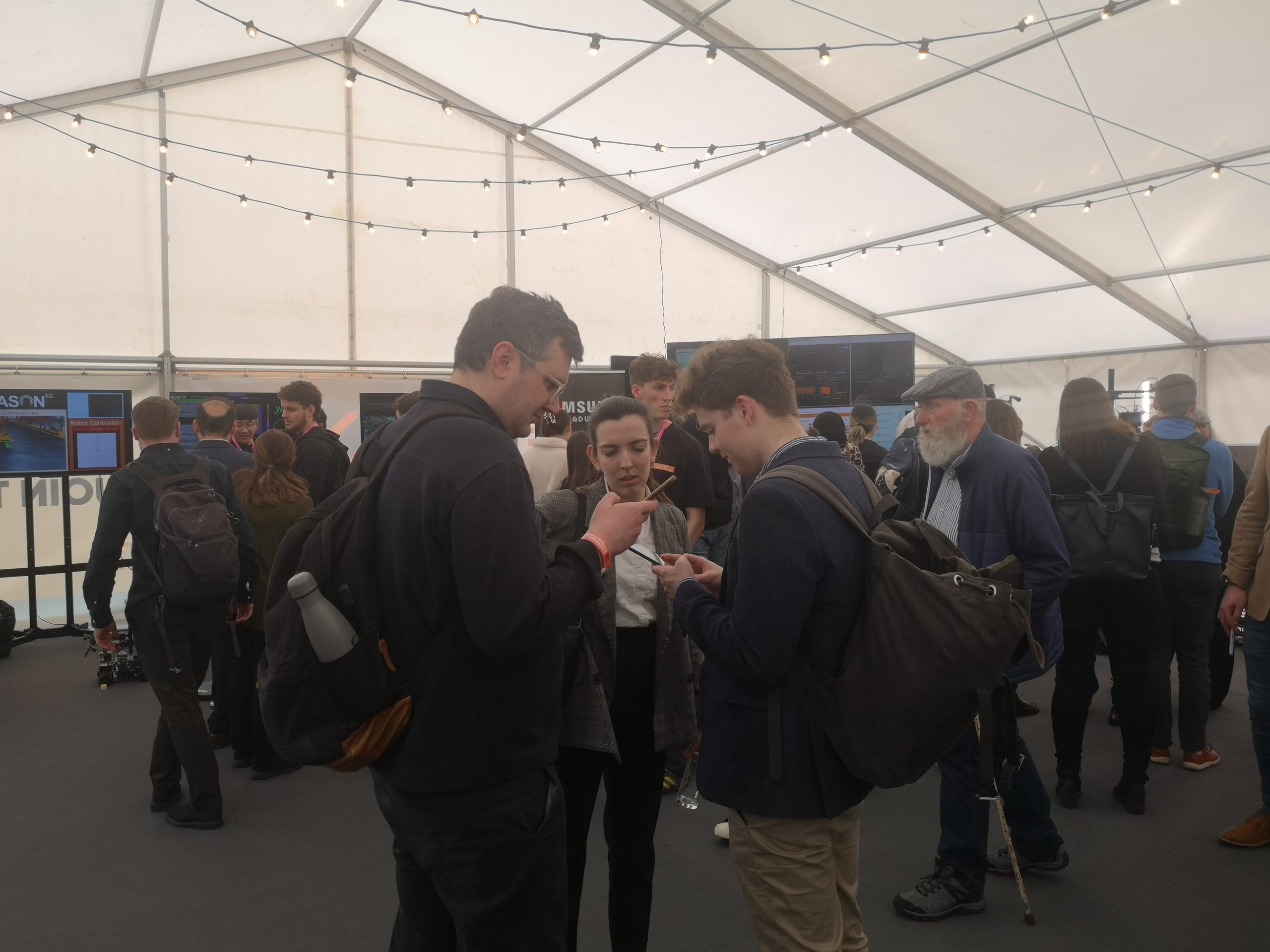
Connected Futures Festival provided a glimpse of future powered by 6G technology to the people of Bristol
All photos: Milan Perera
 Our newsletters emailed directly to you
Our newsletters emailed directly to you